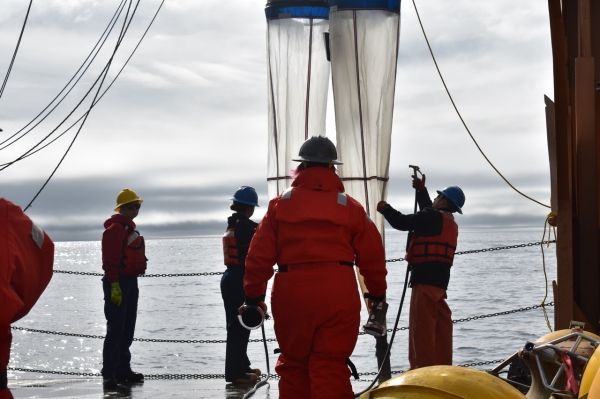In Alaska, fish means work, food, and life for local communities. Understanding the complex interconnections of the U.S. Arctic ecosystem takes close collaboration among scientific experts of many backgrounds. NOAA’s Ecosystems and Fisheries Oceanography Coordinated Investigations program, or EcoFOCI, has a team of 8 scientists aboard the Healy this summer continuing to make progress on this large research goal. NOAA’s Dr. Janet Duffy-Anderson a co-lead of the EcoFOCI program says, “The extraordinary warming, reduced ice extent, and early ice retreat we've been seeing recently is unprecedented and has enormous implications for the fragile Arctic ecosystem. We are working hard to understand these changes and develop forecasts that can be used by people who depend on the Arctic's important resources.”
Since 1984, scientists have been gathering information about the physical ocean environment such as ocean current patterns, water temperature, and sea ice distribution. Researchers have also tracked the abundance and distribution of fish food sources such as zooplankton, and studied the early life stages of fish. “The research helps us understand what factors affect the health and populations of ecologically and commercially important fish and other marine species, and how ecosystems are responding to change,” says NOAA’s Dr. Phyllis Stabeno, a co-lead scientist on the project.
Continue reading at NOAA.
Image via NOAA.


